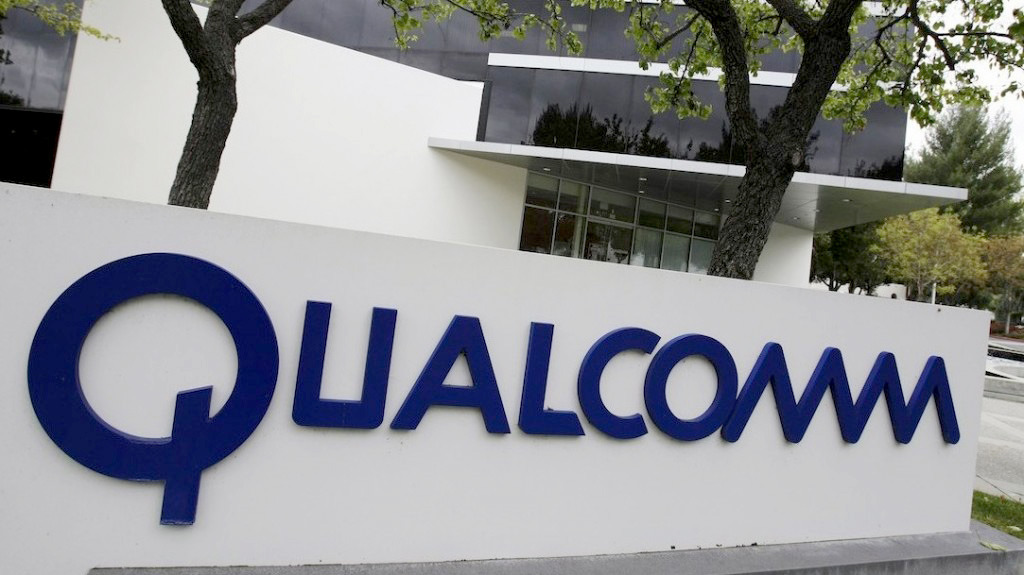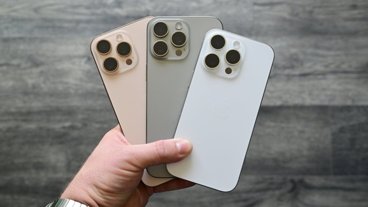Apple appears likely to switch away from Qualcomm modems for upcoming iPhones, at least in part, as suggested by comments from the latter company's CEO made during an earnings call.
In talking to analysts on Wednesday, Steve Mollenkopf said he is "assuming" a major Qualcomm customer will be giving modem orders to another company, Bloomberg reported. While Mollenkopf didn't mention Apple by name, Apple and Samsung are Qualcomm's largest clients, and Samsung is already known to use multiple suppliers.
Apple could conceivably use multiple modem suppliers as well, which would help keep up production levels by eliminating a potential bottleneck. That strategy might also make optimization more difficult however, since two different modems could also perform differently when it comes to power consumption and connecting to cellular networks.
Which company Apple might turn to as a second or alternate supplier is uncertain, but one potential candidate is Intel. A report from October suggested that Intel was pushing to get a modem into next-generation iPhones, to the extent that Apple sent a team of engineers to help optimize Intel's 7360 LTE modem.
Intel modems could be built into the "iPhone 7," expected to ship later this year, probably in September. If so, Apple is likely to settle on modem suppliers shortly if it hasn't already — to make a September ship date, the company may have to start production in July, and have individual components tested and ready before then.
 Roger Fingas
Roger Fingas







 Charles Martin
Charles Martin


 Wesley Hilliard
Wesley Hilliard
 Stephen Silver
Stephen Silver
 William Gallagher
William Gallagher

 Marko Zivkovic
Marko Zivkovic








7 Comments
Intel hired high level Qualcom executive for leading it's mobile division. This is also hint that Intel wants to push deeper into mobile and who else could be better candidate for it's modem chip than Apple ?It would be even better if Apple can just integrate intel modem on Ax processor die like snapdragon has done. More space inside iphone, more space for larger battery.
In a surprise announcement, U.S. Robotics has secured a large order for their modems from Apple. "We always said that Z-Modem would find its way back into the public hearts," said Casey Cowell, CEO. "The V.34 standard was always the most stable thing out there, until the V.90 standard that we helped to develop, that is." Mr. Cowell lauds the V. Everything and V. Everywhere standards as obviously desirable by a large company such as Apple that want only the best for their customers. He did admit that his company would need to direct a bit of attention to miniaturization of their technology, but expressed confidence in the ability to meet Apple's goals.
If Apple can include the Intel designed modem as part of the SOC built on TSMC's process with the use of InFO, it will be a nice advancement. However, if all Intel offers is discrete modem, it is really not much of a win for Intel or a loss for Qualcomm.
Both TSMC and Samsung are now better fabs than Intel. Once they move to 10 nm with Qualcomm's superior designs, Apple will be forced to drop Intel.
Perhaps Intel is willing to license the modem architecture to Apple who can then design them as part of the A and S series of CPUs.
Major win for Apple, but does very little for Intel's bottom line. But Intel really doesn't have much of a choice.
I'll bet modem optimization would be easier if Apple ditched the mostly aluminum case designs in favor of using radio-transparent materials like glass or plastic.